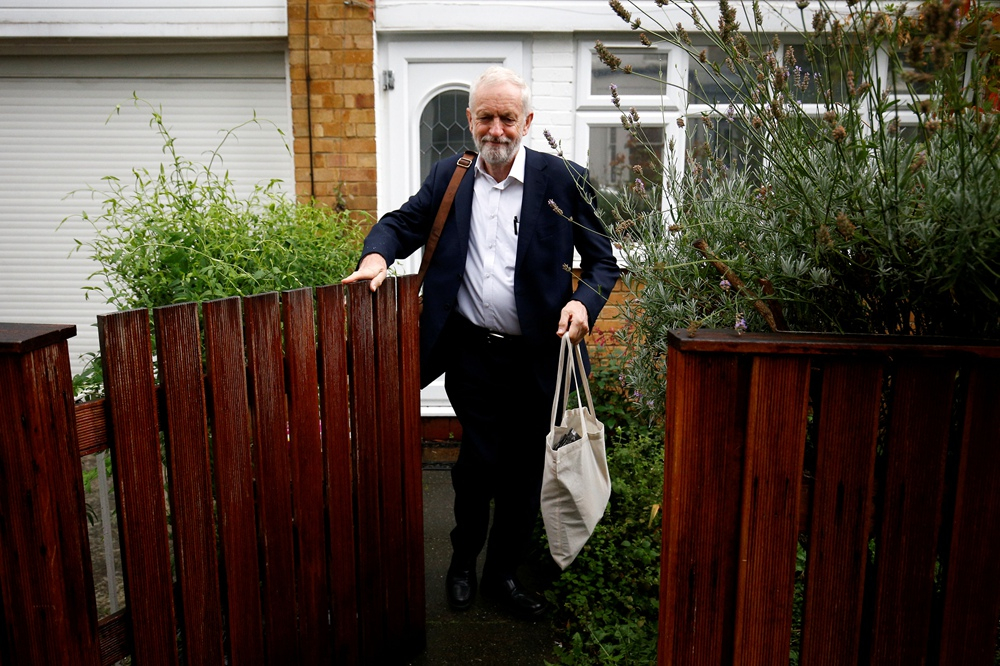
The British parliament voted on Wednesday to prevent Prime Minister Boris Johnson from taking Britain out of the European Union without a deal on October 31, but rejected his first bid to call a snap election two weeks before the scheduled exit.
After wresting control of the day’s parliamentary agenda from Johnson, the House of Commons backed a bill that would force the government to request a three-month Brexit delay rather than leave without a divorce agreement.
Opposition Labour party leader Jeremy Corbyn said he would agree to hold an early election once the bill passed the upper House of Parliament, the House of Lords, and became law, something that could happen on Monday. He did not, however, say whether he agreed with Johnson’s choice of date.

Britain's opposition Labour Party leader Jeremy Corbyn leaves his home in London, UK, September 4, 2019. /Reuters Photo
The current parliament’s bid to tie Johnson’s hands leaves Brexit up in the air, with possible outcomes ranging from a no-deal exit from the EU to abandoning the whole endeavour – both outcomes that would be unacceptable to swathes of the United Kingdom’s voters.
An alliance of opposition lawmakers and rebels from Johnson’s Conservative Party voted 329-300 and then 327-299 for the bill in the second and third readings.
Johnson said the bill had scuppered his Brexit negotiations with the EU and was designed to overturn the 2016 referendum on leaving the bloc.
“It’s therefore a bill without precedent in the history of this house, seeking as it does to force the prime minister with a pre-drafted letter to surrender in international negotiations,” Johnson told parliament. “I refuse to do this.”
“This house has left no other option than letting the public decide who they want as prime minister.”
Election still looms
Johnson’s proposal for an election on October 15 – a date that would allow him, if he won, to repeal the blocking bill – secured 298 votes to 56, far short of the 434 needed, as Labour abstained.
Sterling had earlier jumped above 1.22 U.S. dollars for the first time since August 30 as investors became slightly more optimistic that a "no-deal" Brexit could be avoided.
Beyond the frantic political maneuvering, the United Kingdom could still at some point leave the EU with a deal to smooth the transition, leave without a deal, or cancel Brexit.
A prospective election would offer three likely alternatives: a Brexiteer government under Johnson; a Labour government led by veteran socialist Jeremy Corbyn, who has promised a fresh referendum with staying in the EU as an option; and a ‘hung’ parliament with a coalition or minority government.
“If I am still prime minister after Tuesday the 15th of October, then we will leave on the 31st of October with, I hope, a much better deal,” he told parliament.

Copyright © 2018 CGTN. Beijing ICP prepared NO.16065310-3
Copyright © 2018 CGTN. Beijing ICP prepared NO.16065310-3